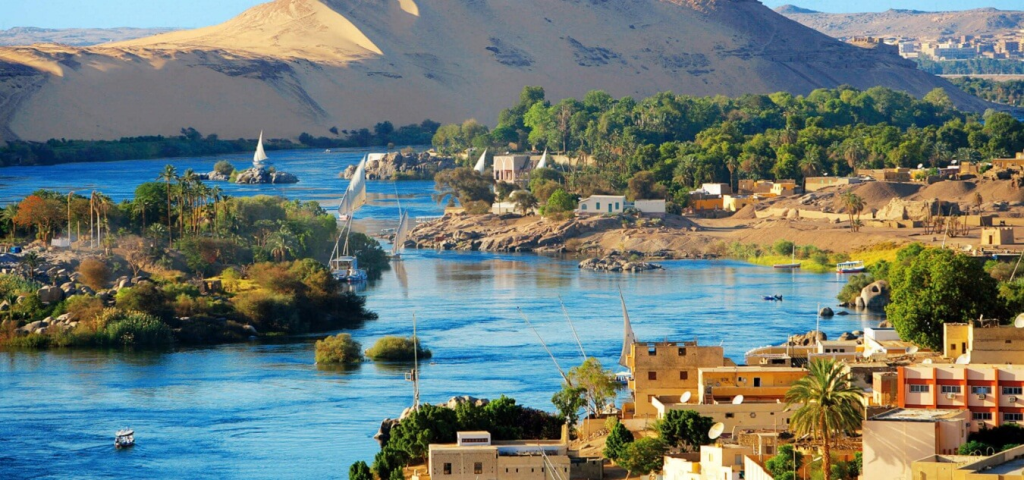
The Nile River, often referred to as the “Mother of Civilization,” is one of the world’s most iconic waterways. Flowing through northeastern Africa, the Nile has played an unparalleled role in shaping the course of history, influencing cultures, economies, and civilizations for millennia. In this authoritative blog post, we embark on an enthralling journey to explore the captivating history of the Nile River.
1. Birth of a Lifeline
The origins of the Nile River can be traced to the African highlands, where it has two main tributaries: the White Nile and the Blue Nile. The White Nile begins at Lake Victoria, while the Blue Nile originates in Lake Tana, Ethiopia. These rivers converge near the Sudanese capital, Khartoum, creating the mighty Nile that flows northward into Egypt and ultimately pours into the Mediterranean Sea.
2. Ancient Egypt: The Gift of the Nile
The Nile’s annual flooding, brought about by the summer rains in the Ethiopian highlands, was both a blessing and a challenge for ancient Egypt. This flooding deposited nutrient-rich silt onto the floodplain, providing fertile soil for agriculture. The Nile’s predictable inundation allowed the ancient Egyptians to develop a sophisticated system of irrigation and cultivate crops that sustained their civilization.
3. The Nile in Religion and Mythology
The Nile River was not merely a physical presence in the lives of the ancient Egyptians; it held deep religious and mythological significance. The river was often associated with the goddess Isis and was believed to be the lifeblood of the land. The annual flood was seen as a symbol of renewal and rebirth, reflecting the cyclical nature of life.
4. The Nile as a Trade Route
The Nile’s strategic location also made it a vital trade route connecting various regions. Ancient Egyptians used the river to transport goods such as grains, gold, and precious stones. As a result, trade flourished, contributing to the growth of the Egyptian economy and its influence in the ancient world.
5. Engineering Marvels: The Nile and Civilization
The Nile’s importance extended beyond agriculture and trade. The construction of monumental structures, such as the pyramids and the Sphinx, was facilitated by the river’s proximity. The Nile also inspired the creation of innovative technologies, including sophisticated irrigation systems and water clocks, demonstrating the advanced engineering capabilities of ancient Egyptians.
6. The Nile in Modern Times
The Nile River continued to play a significant role in modern history. During the colonial era, its waters became a source of contention among European powers seeking control over African territories. The construction of the Aswan High Dam in the mid-20th century aimed to control flooding, generate hydroelectric power, and enhance agricultural productivity. However, this also led to environmental and social challenges, displacing communities and altering ecosystems.
7. The Nile’s Cultural Impact
Throughout history, the Nile River has been an enduring source of inspiration for literature, art, and music. Its mystique and historical significance have been depicted in numerous works, capturing the imagination of people around the world.

